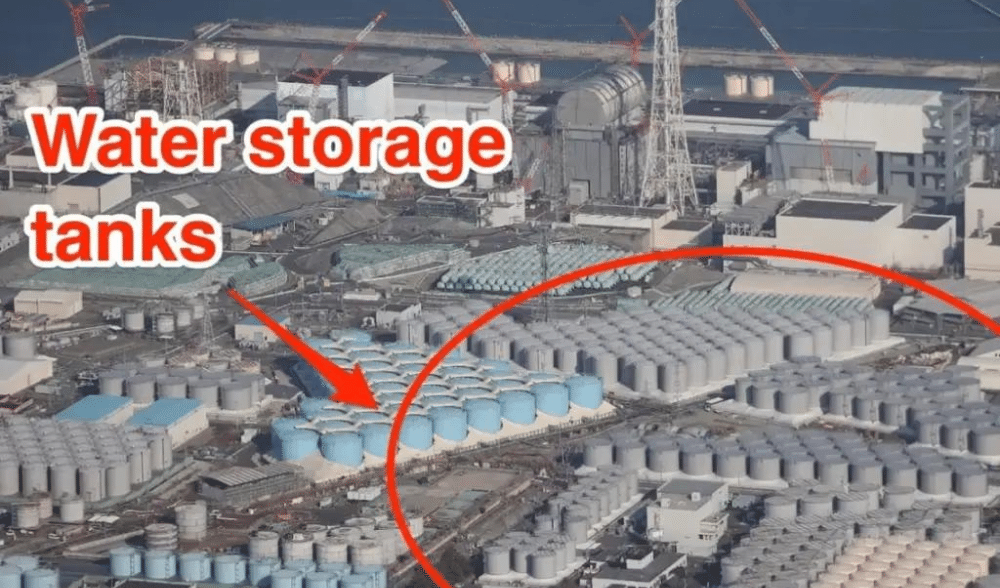MICHELLE CHANG WRITES – March 11 will mark the twelfth anniversary of the Fukushima nuclear disaster, which occurred after Japan was hit with a magnitude 9.1 earthquake and tsunami. This also marks the year that Japan plans to release treated wastewater from the nuclear plant—which has Japanese citizens, not to mention people in neighboring Pacific Island countries, concerned.
When the Fukushima Daiichi nuclear power plant went into meltdown, the Japanese government pumped water in to cool down the damaged reactors. Now, there are more than 1.3 million metric tons of contaminated wastewater stored at the plant — pending planned release later this year, around spring or summer.
Where will these contaminated waters go? Into the ocean, through a pipeline, following treatment that is expected to remove most of the radioactive material. The Japanese government has insured that the release will fall in line with international law and safety standards set by the International Atomic Energy Agency. Still, the water will contain tritium, at least in some measure, which is difficult to extract, as it is a radioactive form of hydrogen and almost identical to the composition of water containing ordinary hydrogen.
This has concerned not only Japanese fishermen and neighboring countries but Pacific Island nations, which have a history of being treated poorly when it comes to nuclear issues. In the Cold-War era, countries including the U.S. and France conducted nuclear tests, then callously dumped their waste in the Pacific near these Island nations. So, with a history of forced relocations and higher rates of cancer resulting from toxic waters, will yet more harm come to their communities?
“The people of the Pacific are people of the ocean. The ocean is very much central to our lives, to our culture, to our livelihoods. Anything that prejudices the health of the ocean is a matter of serious concern,” says Henry Puna, secretary general of the Pacific Islands Forum and former prime minister of the Cook Islands.
Another concern is, could their economies be harmed? After all, much of the world’s tuna is sourced from the Western and Pacific Ocean. Even if the supply is not cut consumers may be less eager to consume.
To be sure, not everyone is worried, the Micronesian president, David Panuelo, told Japanese reporters. “Our country is no longer fearful or concerned about this issue now as we trust in Japan’s intention and technological capabilities in not harming our shared oceanic interests.” Formerly one of the biggest critics of releasing the water, Panuelo’s fears were eased by a series of consultations with the Japanese government.
Still, several countries remain on edge. They wonder whether the IAEA (International Atomic Energy Agency) is working in everyone’s best interests, since its purview includes promoting the use of nuclear technologies.
Given this checkerboard of national resistance versus agreement, Japan may decide to once again postpone the release of its wastewater — at least until public fears of contamination diminish. One thing is certain: Japan is still a long way away from fully decommissioning the Fukushima power plant and putting the tragic March 11th disaster behind it.


One Reply to “JAPAN: IS IT WASTING ITS INTERNATIONAL IMAGE?”